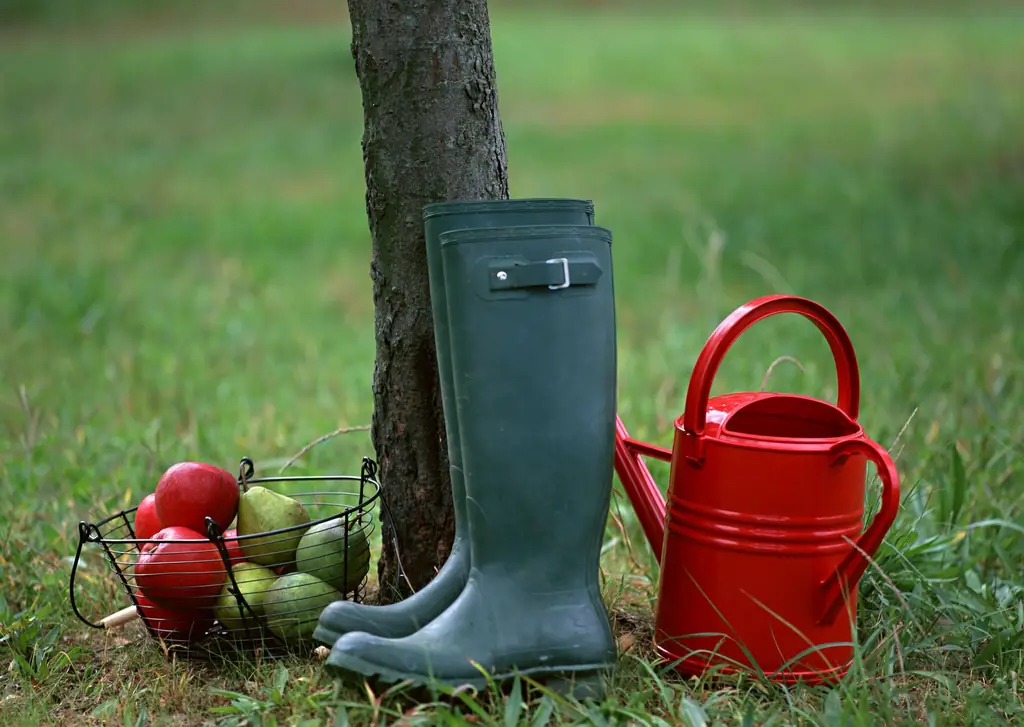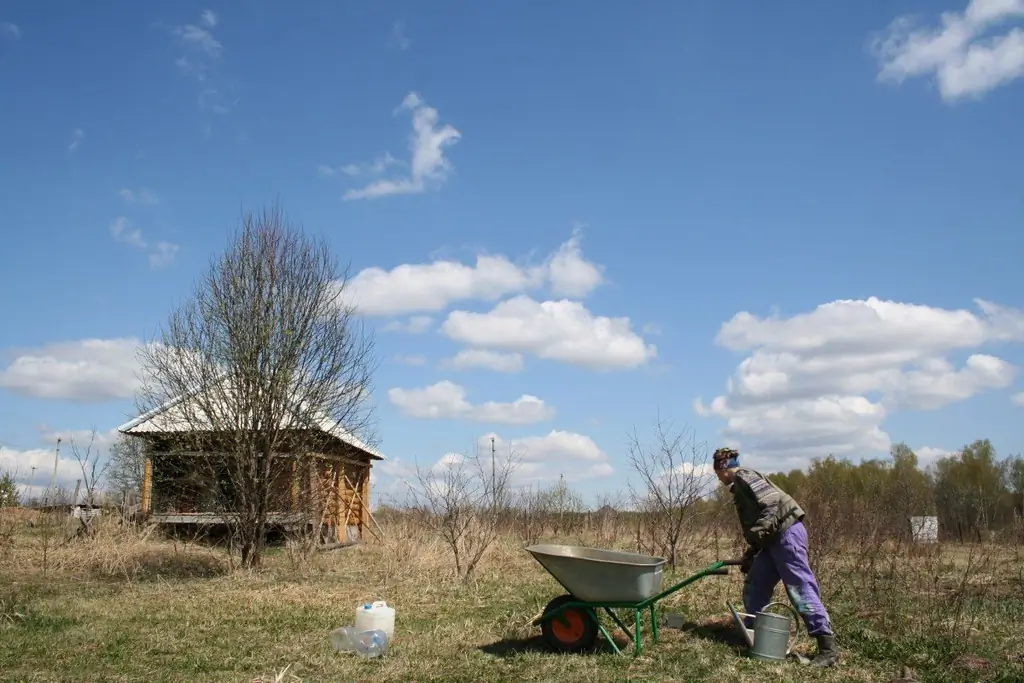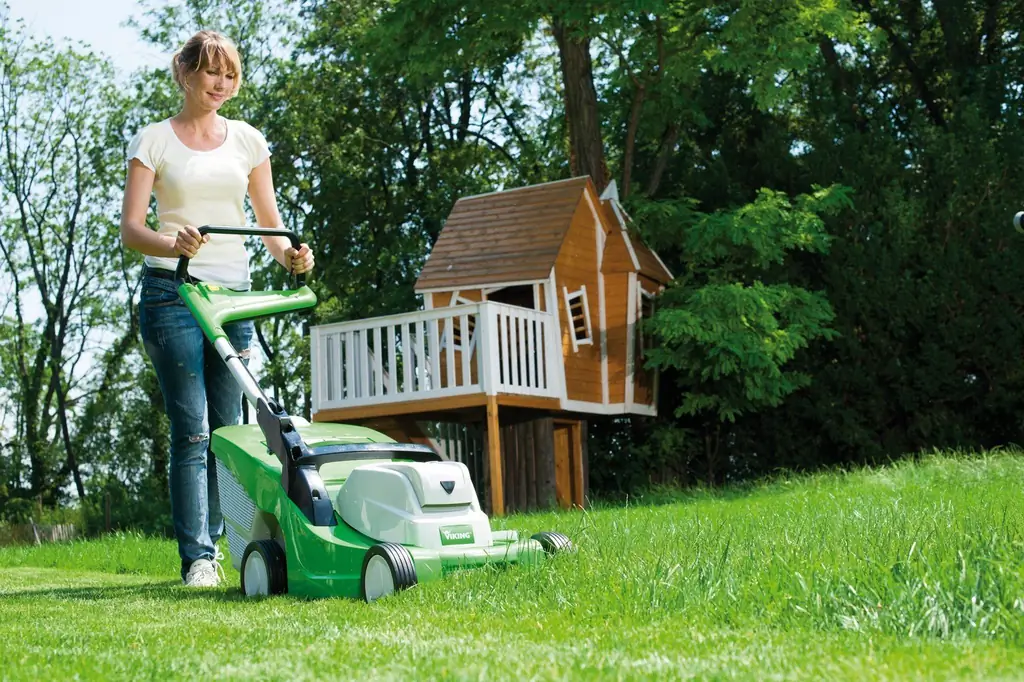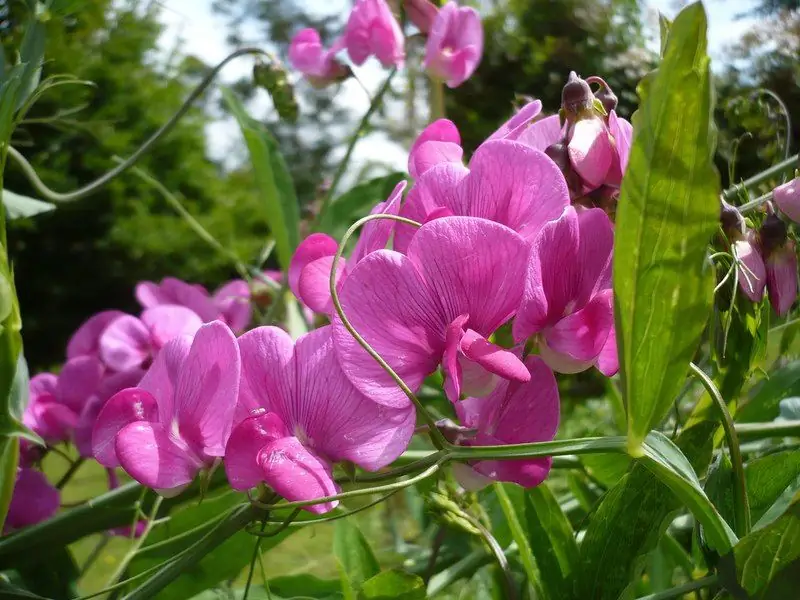
Table of contents:
- Author Bailey Albertson [email protected].
- Public 2024-01-17 22:26.
- Last modified 2025-06-01 07:32.
The hogweed is a dangerous enemy in your garden

The culinary name "hogweed" can be deadly. What, and how to deal with it?
What is hogweed and how dangerous it is
Hogweed is a plant of the Umbrella family. There are more than 50 types of it. Some are edible, such as Siberian hogweed. However, there are varieties that carry a threat. On the territory of Russia and the CIS, this is Sosnovsky's hogweed, which was brought from the Caucasus during the Soviet era. It was planned to use it for silage preparation. However, due to its vitality and adaptability, hogweed has become a malicious weed that easily invades new territories and displaces other plants from them.

The hogweed is found in vast territories of Russia and the CIS
Sosnovsky's hogweed can reach a height of 4 meters, and its leaves - two meters. The stem is ribbed and rough, the flowers are white or pink, collected in umbrellas. This species is deadly to humans. Its juice causes severe burns and swelling of the airways in case of evaporation. Also, an allergic attack can be triggered by plant pollen. Fatal cases have been reported. In addition, hogweed juice has a mutagenic effect (it can cause genetic changes in the body).
Photo gallery: hogweed
-

Sosnovsky hogweed - Sosnovsky's hogweed is gigantic
-

common hogweed - The common hogweed is smaller - its height is usually 1.5 meters
-

Siberian hogweed - The main difference between the Siberian hogweed is yellow-green flowers
How to deal with hogweed
I have heard about burns from hogweed for a long time, therefore, having seen thickets of plants in an undeveloped summer cottage, I was careful not to touch it with my bare hands. But I did not know about the allergenic effect of pollen and juice fumes. When I started mowing weeds, I felt unwell - it became difficult to breathe, my eyes were swollen. Since I am allergic, I realized what was wrong with me. It's good that Suprastin was there and thought to accept him. I do not recommend mowing a large amount of adult hogweed. Or you should protect yourself by wearing a protective suit, gloves and a respirator; however, these protective measures are mandatory for any contact method of controlling the plant.

The fight against hogweed is practiced not only in individual farms, but also at the state level
Mechanical method
In general, mowing is used to combat hogweed at the stage of young leaves. This operation is performed at least twice a summer, but more often. Be sure to mow before the seeds are ripe so that a new generation of weed does not spread. The vacated areas are sown with green manure, for example, mustard or clover. Another option is to cover the beveled hogweed with black non-woven fabric or plastic wrap. Without access to sunlight, new plants most likely will not be able to develop.
In large areas, it is unlikely to cope with the weed by hand. The way out in such cases is deep plowing of the land with disking (in particular, harrowing). The roots of Sosnovsky's hogweed can reach a depth of 2 meters, so they need to be pulled out and chopped using technology. Further, the site is also sown with green manure or any other crops.

Personal protective equipment is a mandatory measure for the destruction of hogweed by both mechanical and chemical methods
Chemicals
An easier way to control is the use of herbicides. It is better to use drugs based on glyphosate, for example, Roundup or Ground - they destroy not only the terrestrial part of the plants, but also the roots.
- Only fairly concentrated solutions are effective (in the maximum doses allowed for the drug: 20 ml of an aqueous solution of glyphosate (360 g / l) per 1 liter of water).
- At least 70-80% of plant leaves are irrigated with chemicals.
- The minimum consumption of the working solution is at least 5 liters per 100 m2 of the area captured by the hogweed.
- In the case of high-quality treatment of the site, after 30 days, all treated plants on it will die (the aboveground part will turn yellow and will intensively decompose).
- There is a high probability of the reappearance of young Sosnovsky hogweed plants that emerged from seeds accumulated in the soil. Such plants can be destroyed mechanically or by a new treatment with herbicides.
- The results of this treatment should be monitored 30 days after repeated exposure.
Traditional methods
When in contact with the soil, folk remedies make it unsuitable not only for hogweed, but also for other plants. Therefore, they are not used on land that will become a garden or vegetable garden.
- The weed-infested area is sprinkled with salt (1.5 kg per 1 m 2) or watered with warm saline (1.5 kg per 10 liters of water).
- The cow parsnip is sprayed with a solution of 1 liter of water, 1 liter of vinegar, 40 g of citric acid, 50 ml of alcohol, 2 tablespoons of dish soap.
The effectiveness of these methods is doubtful, because the hogweed is very tenacious. But if there is not much of it, you can first try folk remedies.
Video: how to defeat Sosnovsky's hogweed
Poisoning symptoms and first aid
At any contact with cow parsnip, monitor your well-being. Common signs of poisoning:
- severe muscle weakness;
- dizziness;
- increased body temperature;
- nausea and chills.

A common result of contact with hogweed is blistering from burns
The burn is accompanied by:
- severe itchy skin;
- the affected skin turns red;
- blisters appear filled with a cloudy liquid (after a while they burst, ulcers develop in their place);
- damaged skin dries up and exfoliates.
If a person has inhaled pollen, breathing becomes difficult. With allergies, there may also be sneezing, eye swelling.

When in contact with hogweed, just in case, remember the first aid algorithm
First aid for poisoning with hogweed:
- Wash off the juice from the skin.
- Take an antihistamine.
- Protect the affected area from the sun with a tight bandage.
- See a doctor.
If you are allergic to pollen, the first and third points are relevant. If a large area of skin is affected or suffocation appears, loss of consciousness - immediately call an ambulance.
To protect yourself and your loved ones, you need to remove the hogweed from the site. But in the process of struggle, do not forget about the precautions too.
Recommended:
Work At The Summer Cottage In The Autumn (with Video)

Description of autumn work at the summer cottage. Recommendations for harvesting and storing crops, warming trees, preparing the soil for winter
Putting Order In The Spring At Their Summer Cottage (+ Video)

Practical advice and recommendations for cleaning the territory on the personal plot; used technique and tools
How To Choose A Lawn Mower For A Summer Cottage: Gasoline Or Electric, Self-propelled Or Manual

A detailed description of the different types of lawn mowers. Practical tips for choosing a lawn mower, what to pay attention to
Perennials For Summer Cottages Blooming All Summer: A Selection Of Interesting Perennial Flowers

Description of perennial flowers blooming all summer: appearance, growing conditions, breeding method. Lots of photos
Unpretentious Annual Flowers For A Summer Residence: Names And Photos, Including Blooming All Summer

A selection with photos and short descriptions of beautiful and unpretentious annual flowers for novice florists
